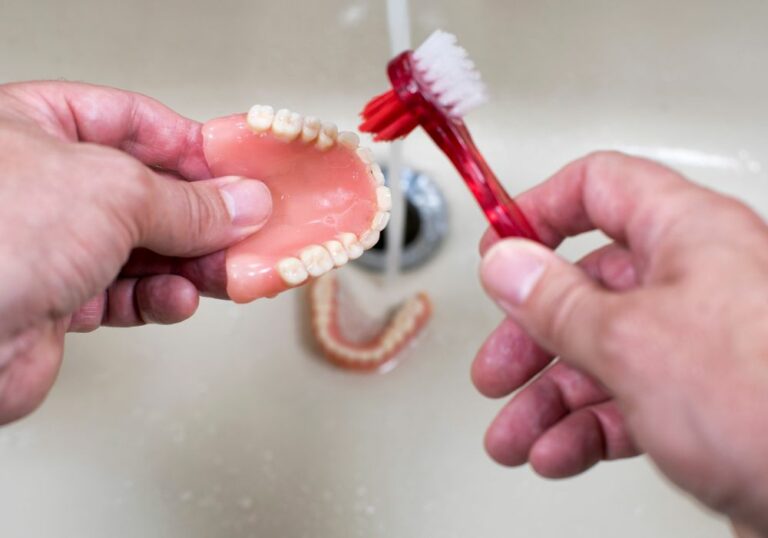The dental field offers a range of opportunities providing professionals with the chance to pursue their interest in health care. Whether one chooses to become an assistant or an oral surgeon each role plays a part in enhancing and preserving patients dental well being. This Article briefly delves into the career options within the industry outlining the duties, educational prerequisites and prospects, for advancement. For those aiming to excel in their careers, exploring the best dental pathways could be a wise move.
What Is an Oral Surgeon?

An oral surgeon referring to a professional dentist is someone who performs surgical procedures in the mouth, teeth, jaws, and face at a dentist office. Following education, at school and finishing a residency program a dentist has the option to pursue a career as an oral surgeon. Major tooth extractions, face deformity operations, dental implants, and treatment of the body’s organs are some of the issues that concern an oral surgeon. They handle tasks like major tooth extractions, fixing facial deformities, placing dental implants, and treating mouth and facial conditions. To become an oral surgeon, one needs a dental school diploma, a surgical residency, and additional training.
Oral surgeons play a critical role in both dental health and overall health. They handle cases that go beyond the capabilities of general dentists, providing care for serious conditions and complex issues. Their work can significantly boost a patient’s well-being by solving the issues that influence speaking, chewing, and facial aesthetics.
It can be quite hard to become an oral surgeon but the final result is really rewarding in the end. Along one’s path of getting a dental degree, one often has to attend a residency program in oral and maxillofacial surgery and, at times, earn a board certification as well. A long period of training is required to make oral surgeons competent enough to practice their work with relative ease and confidence.
Why Is It Important to Become One
One should note that the grace of professionals is demonstrated by their blind devotion to the training, the dramatic changes in the dental technology field, and the conquest of breakthroughs in surgery. Education is achieved through continuous learning, wherein (oral) surgeons get informed all the time through regular training, conferences, online courses, and completion of advanced degrees, giving them the ability to efficiently diagnose and treat their patients, giving the best healthcare. CDW (Continuous education) also is the only way to maintain the proper industry standards and acquire the necessary license.
Oral surgeons contribute significantly to the advancement of care by undergoing thorough training and consistently striving for excellence. Their education is a blend of learning and practical experience enabling them to offer treatments for intricate dental and facial problems.
Dental Assistant
Responsibilities
- Assist dentists during procedures.
- Prepare and sterilize instruments.
- Take and develop dental X-rays.
- Manage patient records.
- Schedule appointments and handle office tasks.
Education and Training
- HS diploma or GED certificate equivalent.
- Receive free training for Dental Assisting that takes between 9-12 months where you will be able to pick up a job or you can opt for employment-based training.
- Certification (optional but beneficial): Certified Dental Assistant (CDA) exam.
Career Growth
- At the outset, you should take advantage of the opportunity to gain work experience and increase your educational level, which will eventually lead to your introduction to Dental Hygienist and Office Manager positions.
Dental Hygienist

Responsibilities
- Perform teeth cleanings and preventive care.
- Take and develop dental X-rays.
- Educate patients on oral hygiene practices.
- Assist dentists with various procedures.
Education and Training
- A dental hygiene degree is obtainable within a period of 2 to 3 years.
- Qualification to take that exam comes after successfully passing the National Board Dental Hygiene Examination.
- State licensure.
Career Growth
- Another great opportunity is to have courses on child care or elder care which allows young dentists to specialize in these areas.
- To possess a B.S. or M.S. will help you to be fully equipped with the required skills to pursue a career in teaching or research.
General Dentist
Responsibilities
- Discover such common dental diseases as cavities, and gum diseases, and also provide medications aimed at treating them.
- Operated by the application of techniques like fillings, crowns, and root canals.
- Do dental health teaching and provide the usual care of dental health.
- Manage dental practice.
Education and Training
- Bachelor’s degree (4 years).
- Dental school (Doctor of Dental Surgery (DDS) or Doctor of Dental Medicine (DMD), 4 years).
- Pass national and state licensing exams.
Career Growth
- Opportunity to specialize in fields like orthodontics, periodontics, or oral surgery.
- Open or join a private practice.
Orthodontist
Responsibilities
- Provide analysis and treatment for displaced teeth and jaws.
- Construct and install braces, retainers, and other orthodontic devices.
- Check schedule for regular checkups and modify treatments accordingly.
Education and Training
- Complete dental school (DDS or DMD).
- Orthodontic residency program (2-3 years).
- Pass the American Board of Orthodontics certification exam.
Career Growth
- Opportunities to work in private practice or specialized clinics.
- Engage in research or teaching roles within orthodontics.
Periodontist

Responsibilities
- Diagnose the overlapping issues of the role of the environment in disease and treatment options for them.
- Carry out surgical methods like gum grafts and dental implants for gum disease.
- Teach patients to look after gum health properly.
Education and Training
- Complete dental school (DDS or DMD).
- Fulfill the periodontics residency program that goes three years.
- Certification from the American Board of Periodontology.
Career Growth
- Specialize in advanced surgical procedures.
- Work in private practice, research, or academia.
Oral and Maxillofacial Surgeon
Responsibilities
- Perform surgeries on the mouth, jaws, and face.
- Treat complex dental issues, facial injuries, and deformities.
- Administer anesthesia and provide post-surgical care.
Education and Training
- Get your dental degree at a dental school.
- Oral and maxillofacial surgery residency program (4-6 years).
- Certification from the American Board of Oral and Maxillofacial Surgery.
Career Growth
- Opportunities in private practice, hospitals, or academic settings.
- Engage in specialized surgical research.
Prosthodontist
Responsibilities
- Design and fit dental prostheses like dentures, crowns, and bridges.
- Restore and replace missing teeth.
- Work closely with dental labs to create custom prostheses.
Education and Training
- Complete dental school (DDS or DMD).
- Prosthodontics residency program (3 years).
- Certification from the American Board of Prosthodontics.
Career Growth
- Work in private practice or academic settings.
- Engage in prosthetic research and development.
Pediatric Dentist
Responsibilities
- Dental care for kids is given from the beginning of their life to the time when they are teens by most dental doctors. This includes taking care of their teeth when they are a baby, the exercise of brushing their teeth properly when they are toddlers and visiting the orthodontists.
- Diagnose and treat dental issues specific to children.
- Educate parents and children on oral health practices.
Education and Training
- Complete dental school (DDS or DMD).
- Pediatric dentistry residency program (2-3 years) is included in the off-campus dentistry which is structured on the basis of the bio-behavioural sciences pediatric department at the University of Florida.
- Certification by the American Board of Pediatric Dentistry would also be a plus, if you want to enroll in the studies in pediatric dentistry.
Career Growth
- Work in private practice or children’s hospitals.
- Opting to engage in pediatric dental research and education is a very wise decision as it not only helps in creating better people but also opens the door for the researchers and professionals to be at the frontline of medical care.
Importance of Continuing Education
One of the most important factors in continuous education is in the career development of dental professionals. How can it be possible since there have been significant gains in dental science and technology over the years? With the introduction of new scientific findings in daily practice, the program facilitates real-time learning and monitoring.
Why Continuing Education is Crucial
Success in the dental field comes with staying up to date at the expense of finding continued education. Dentistry is a rapidly developing science and technology is a crucial feature of it, therefore, dentists require continuing education to be able to keep in touch with the new inventions and methods. They are this stone. However, it also leads to helping individuals every day by mastering the new methods and procedures that they implement. The legality of actual healthcare professionals obtaining additional knowledge depending on the provider of the educational program and the category of the practitioner is stated at the moment (in some states).However, it is a struggle often to sleep at night if I don’t meet the client’s needs. This is the thing that makes my job a bit easier and helps me get over the stress of a particularly challenging client.
Benefits of a Career in Dentistry
A career in dentistry offers many benefits. One major benefit is job security. Dental professionals are in high demand all the time as dental health affects the general health of a person. Furthermore, the work is very fulfilling, as dental professionals help increase the patients’ quality of life by directly correcting the dental problems and educating them about dental health. The field offers a variety of career paths and daily tasks, providing diversity in work. Additionally, dental careers offer competitive salaries and benefits, ensuring financial stability.
Challenges in the Dental Field
It could be challenging for dental professionals to steal comfort in the dentist’s chair or monitor the anxiety of people during operations and they never have the chance to interpose the care they provide at all.They also need to maintain a high level of precision in their work, besides dealing with patients’ fear and stress. The profession of dentistry is not only a great mental task, but also a serious physical challenge. It includes a lot of standing, bending, and walking. This can occur even if you have extreme patience and a high threshold for pain.
Conclusion
A profession in dentistry has really a lot to offer. There are distinctive job profiles with distinct duties and expanded possibilities for better career prospects. To get a dental assistant to an oral surgeon, this industry has got a countless number of specializations learning the interaction and caring of patients, and the good experience of getting a visible change to be able to change the whole life. For that reason, it is reasonable to devote a certain period of time to getting one or the other.







